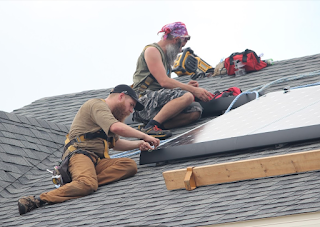
by jboullion | May 10, 2017 | Uncategorized
For Immediate Release
More Information:
Katie Crawley, Mayor’s Office
Katherine
Klausing, RENEW Wisconsin
614-406-1105
 |
A team from Full Spectrum Solar installs a solar array
for a 2016 Group Buy Participant |
May 9, 2017 –
Madison. The Cities of Madison and Middleton have selected the winning offer
from contractors who competed to serve the MadiSUN Solar Group Buy program, which
helps residents easily and affordably invest in solar electric systems on their
homes. The cities have selected a collaborative bid from Full Spectrum Solar and Midwest
Solar Power, two solar installation companies based in Madison.
The MadiSUN Solar
Group Buy program allows Madison and Middleton residents to “go solar”
together. MadiSUN used a competitive Request for Proposals process to
seek offers from solar companies across the region, and dozens of
companies were invited to bid. For the first time, the program selected a
collaborative bid from two companies, who will offer the same price and
services.
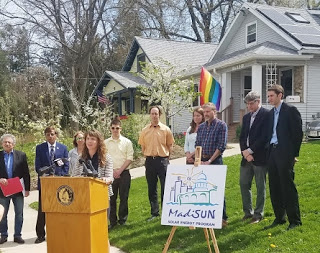 |
| The 2017 MadiSUN solar program launched on April 24, 2017 |
Katherine Klausing, MadiSUN Program Manager, said “we were really pleased with the
competitive offers we received.” The program evaluated bids based on pricing,
work quality, customer service and the company’s qualifications. “This is going to be a great deal for
families who are interested in going solar this year. Our participants say that
they feel better knowing there’s a trusted company that has been vetted by our
program. By going with the group buy and benefitting from the low price we
negotiate, families can save an extra 10 percent compared to what they would
pay to go solar alone.”
Alarik Rosenlund,
Co-Owner of Midwest Solar Power, says his company is happy to partner with
the program to bring more solar energy to local residents. “This year may
be a real sweet spot for anyone looking at installing solar, especially with
the tax credits and rebates available,” Rosenlund said. But it’s not just
about the economics. “This is a great way for people to take action on
something really important.”
The cost of installing solar has never been lower, and households
can receive a Federal Tax Credit for 30 percent of the system cost, while
Wisconsin’s Focus on Energy program offers up to $2,000 in additional rebates.
New solar education
events were also announced, aimed at helping residents learn more about
solar energy and the options available for installing solar. All events are
free and open to the public. The dates, times, and locations information
sessions are available at
www.madisunsolar.com/upcoming-events
and enclosed below.
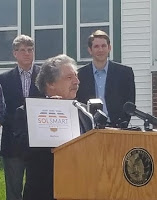 |
Madison Mayor Paul Soglin
accepted a SolSmart Gold award |
Madison earned a
“gold” designation from SolSmart, the highest level of
recognition from a national program under the
U.S. Department of
Energy’s SunShot Initiative. The “gold” designation recognizes the city’s
efforts to accelerate solar development, from improving permitting and zoning
for solar, to investing in financing and solar workforce training programs. The
announcement took place at on Monday at the National Planning Conference in New
York City.
“Madison’s commitment to continued utilization of solar
energy is genuine,” said Madison Mayor
Paul Soglin in a statement. “We have our Green Power Program in
which we train new workers to install solar, our goal of producing one Megawatt
of Solar by 2020 and incredible partnerships like SolSmart and others. We
are on our way!”
As a
SolSmart Gold designee, Madison received national recognition for adopting
programs and practices that make it faster, easier, and cheaper to go solar. A
SolSmart designation is a signal that the community is “open for solar
business,” helping to attract solar industry investment and generate economic
development and local jobs. Madison recently became the first community
in Wisconsin to commit to a goal of 100 percent renewable energy.
About
SolSmart
SolSmart
is a national designation and technical assistance program that recognizes
leading solar communities and empowers additional communities to expand their
local solar markets. Funded by the U.S. Department of Energy SunShot
Initiative, SolSmart strives to cut red tape, drive greater solar deployment,
and make it possible for even more American homes and businesses to access
solar energy to meet their electricity needs. Learn more at SolSmart.org.
About MadiSUN Solar
Group Buy
MadiSUN
works to expand solar energy adoption through a comprehensive, community-wide
approach. This group purchase program
is operated by RENEW Wisconsin Inc., a nonprofit organization, on behalf of the City of Madison, with support from the
City of Middleton. The goal of the program is to increase solar education and adoption in
the Madison and Middleton areas through a group purchase and competitive
bidding process. In conjunction with this program, RENEW Wisconsin and the City
of Madison will partner with Summit Credit Union to provide a special solar
loan program for Madison residents. This
summer, participants can learn more and sign up at madisunsolar.com.
Solar Information
Sessions
1. Madison
College, Truax Campus
Tuesday May 16th at 6pm
Protective Services Building, Room 215,
1701 Wright St, Madison
2. Goodman
Community Center
Tuesday June 6th at 6pm
Merrill Lynch Room, 149 Waubesa St, Madison
3. Good Shepherd
Lutheran Church
Tuesday June 13th at 7pm
Peterson Hall, 5701 Raymond Rd, Madison
4. Middleton
Public Library
Wednesday June 28th at 6:30 p.m.
7425 Hubbard Ave, Middleton
5. Catholic
Multicultural Center
Thursday July 6th at 7pm
1862 Beld St, Madison
6. Capital
Brewery & Bier Garten
Monday July 17th at 5:30pm
7734 Terrace Ave, Middleton
7. First
Unitarian Society
Sunday July 30th at 12:30 p.m.
900 University Bay Dr, Madison
###

by jboullion | Oct 20, 2016 | Uncategorized
Today, the Public Service Commission of Wisconsin authorized
approximately $7.7 million in rebates spanning 2017 and 2018 to spur small,
customer-based renewable energy projects throughout Wisconsin.
The rebates go to residential, business, and non-profit
customers of eligible Wisconsin utilities, and enable the customers to install
renewable energy technologies including solar, geothermal, biogas, biomass and
small wind systems.
 |
| Full Spectrum Solar installs a solar PV system via the MadiSUN program |
|
Tyler Huebner, Executive Director of RENEW Wisconsin, said,
“From our renewable energy perspective, Chairperson Ellen Nowak may have said
it best in her concluding remarks, stating, ‘This is a great win for
Wisconsin.’ Indeed, continuing the highly successful renewable energy rebates
for 2017 and 2018 is a great win. This
level of renewable energy rebate funding should support upwards of 500 solar
electric home installations, 70 or more home geothermal installations, and
dozens of larger business renewable energy projects for each of the next two
years. The program will help our
residents save money and our companies stay cost-competitive.”
The Commission asked Staff to recommend how the renewables
funding should be split between residential and business projects, as well as a
review of the incentive levels in light of the fact that technology prices for
renewable energy systems, specifically solar electric systems, have been
dropping very quickly in recent years.
RENEW Wisconsin will provide our recommendations, and those of the
renewable energy industry, to Commission Staff in the coming days.
In addition, the Commission will evaluate spending $10-$20
million to expand biogas production from anaerobic digesters on dairy
farms. Staff and program administrators
will be developing biogas program options for the Commission to investigate
within 30 days, along with program options for increasing Focus on Energy’s
energy efficiency and renewable energy impacts in rural Wisconsin.
The Commission agreed to lower its cash reserve from $30
million down to $5 million, which freed up dollars carried over from previous
years to be put into programs starting in 2017.
Huebner said, “We applaud the Commission freeing up millions of dollars
of ratepayers’ money from previous years to be put into programs now that will
enable energy and dollar savings for customers across Wisconsin.
RENEW Wisconsin was the lead advocacy organization promoting
the continuation of the renewable energy rebates. We provided two separate memos describing the
history and status of the renewable energy industry and its relationship with
Focus on Energy and advocating for a continuation of rebates. In addition, a sign-on letter promoting
continuation of renewable energy rebates, which was supported by 41 businesses
and organizations from throughout Wisconsin, was delivered to the PSC as part
of the public comment period in this proceeding.
The PSC had authorized a renewable energy loan program in
2014 and allocated $10 million to it over four years. Today, approximately two years into the
program, the PSC decided to end the program and spend the remaining funds
instead on rebates, which had outperformed the loan program in that two year
period.
Biogas production through anaerobic digesters will also see
a boost. The PSC re-committed to
spending $6.4 million on this technology, which it had authorized in 2014. An initial plan to focus on smaller dairy
farms was not as effective as envisioned.
Today, the PSC authorized the creation of an interagency working group
to identify opportunities to expand this technology and its benefits of
renewable energy production, water quality improvements, and on-farm revenue
stability, and indicated that programs between $10 and $20 million should be
investigated to spur this technology.
In its comments to the PSC, RENEW pointed out that we have
world-class companies working in anaerobic digesters right here in Wisconsin
that can help make this program a success.
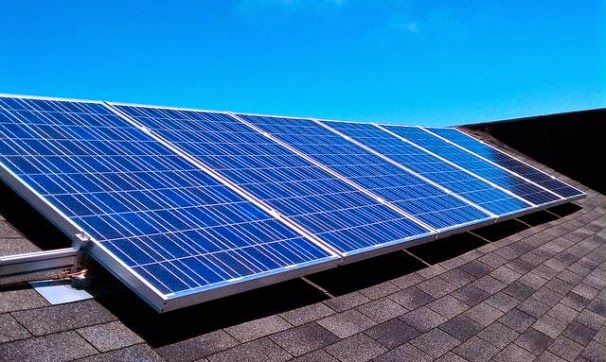
by jboullion | Jan 22, 2015 | Uncategorized
The Alliance for Solar Choice and RENEW Wisconsin ask courts to rule on the legality of controversial rate case decision
Contacts:
Amy Heart Tyler Huebner
The Alliance for Solar Choice RENEW Wisconsin
414-510-8965 (m) 608-575-2201 (m)
MADISON, WI – January 22, 2015 – The Alliance for Solar Choice (TASC) and RENEW Wisconsin today filed an appeal of the Wisconsin Public Service Commission’s December decision to impose discriminatory charges against solar customers in We Energies territory. The appeal challenges 1) the total lack of support in the public record for the charges and 2) the discrimination against solar and low usage customers.
“The Public Service Commission’s own staff expert testified that there was not enough evidence in the record to approve the discriminatory solar charges,” said Amy Heart, spokesperson for The Alliance for Solar Choice. “That will be difficult to deny in the courts.”
Over 500 Wisconsin residents attended a public hearing in October to oppose We Energies’ proposal, and their outcry garnered national media attention.
“The Public Service Commission has essentially permitted a private company, We Energies, to institute a new tax on some of its customers,” said Tyler Huebner, Executive Director of RENEW Wisconsin. “The record doesn’t support this decision, and we look forward to an impartial review of the facts behind this case.”
“We Energies commissioned a confidential internal study of solar in Wisconsin and found that solar customers provide a net financial benefit to all ratepayers,” said Heart. “That will be difficult for the Commission to deny in the courts.”
About The Alliance for Solar Choice: The Alliance for Solar Choice (TASC) leads the rooftop solar advocacy across the country. Founded by the largest rooftop companies in the nation, TASC represents the vast majority of the market. Its members include: Demeter Power, Silevo, SolarCity, Solar Universe, Sunrun, Verengo, ZEP.
About RENEW Wisconsin: RENEW Wisconsin leads and accelerates the transformation to Wisconsin’s renewable energy future through advocacy, education, and collaboration. RENEW represents over 50 companies in the Wisconsin renewable energy industry.
by jboullion | Aug 28, 2014 | Uncategorized
Experts find no evidence to support proposal
Press Release from RENEW Wisconsin and Environmental Law & Policy Center
August 28, 2014
MADISON, WI – Expert witnesses criticized We Energies’ proposals to raise “fixed” charges for everyone and add fees and restrictions to customers that wish to generate clean, renewable energy on their own property, in testimony filed Thursday with the Public Service Commission of Wisconsin.
Experts for RENEW Wisconsin and the Environmental Law & Policy Center determined that We Energies’ proposed billing changes are unjustified, would reduce all customers’ ability to control their electricity bills, and would stifle the growth of energy efficiency and renewable energy.
Karl Rábago of Rábago Energy, LLC called the proposal “an astounding failure of basic ratemaking” and determined that the Company provided “no reasonable justification” for imposing charges on their customers.
Michael Vickerman of RENEW Wisconsin concluded the proposal would cripple the solar industry in Wisconsin, and would reduce a customer’s return from a new solar system by more than one-third (35%) and slash savings from an existing system by nearly one-half (47%).
Brad Klein, senior attorney at the Environmental Law & Policy Center, called the proposal a dangerous precedent. “We Energies is attempting to exert its monopoly power to restrict customer choice and take money out of the pockets of customers who use less energy.”
Tyler Huebner, executive director of RENEW Wisconsin said, “We Energies’ proposals, if approved, would punish customers who have done the right thing by going solar, and take away jobs for the small businesses that make a living in this industry which has grown nationally to over 140,000 employees through 2013.”
The new charges and service restrictions contemplated by We Energies include:
§ Increasing monthly fixed charges by more than 75%, which would disproportionately affect customers that use less energy (see “Robin Hood in Reverse” release)
§ Adding a new “capacity demand” charge that alone will offset nearly 30% of a customer’s savings from solar
§ Paying solar generators just 4.2 cents for each extra kilowatt-hour of electricity they create, while re-selling that electricity to other customers at up to 28 cents during peak daytime summer hours
§ Restricting solar energy financing options that help low-income customers, municipalities, churches and non-profits more affordably go solar
The expert witnesses’ main recommendations were to reject the utility’s proposals. “A broader discussion is needed to enable us to ‘look before we leap’ – to carefully examine both the benefits and costs of customers producing their own clean power before simply accepting this utility’s view,” said Huebner.
More information:
· RENEW Wisconsin’s testimony in this We Energies case can be found at the Public Service Commission’s website, http://psc.wi.gov/apps35/ERF_search/default.aspx, by searching for Docket 5-UR-107.
· Testimony in this case comes on the heels of testimony filed two weeks ago in the Wisconsin Public Service rate case, Docket 6690-UR-123, which RENEW Wisconsin characterized as “Robin Hood in Reverse.”
· RENEW also recently discussed We Energies’ proposed changes which would affect future biogas projects. See press release.
RENEW Wisconsin is an independent, nonprofit 501(c)(3) organization that leads and accelerates the transformation to Wisconsin’s renewable energy future through advocacy, education, and collaboration.
ELPC is the Midwest’s leading public interest environmental legal advocacy and eco-business innovation organization. We develop and lead successful strategic advocacy campaigns to improve environmental quality and protect our natural resources.
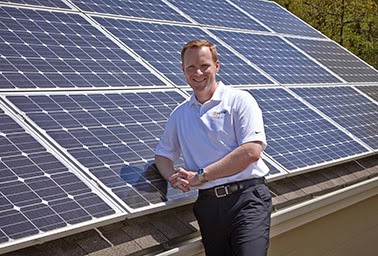
by jboullion | Aug 14, 2014 | Uncategorized
This article was published electronically August 14, 2014 in the Energy & Environment News Service and is re-printed here with permission from the reporter.
Evan Lehmann, E&E reporter
Four years ago, a Wisconsin Republican urged his party to overcome its fear of environmental action, saying that a conservative green movement could strengthen both the economy and GOP candidates. Then he got clobbered.
Now his son is taking a turn. Matt Neumann hopes to convince state officials that Wisconsin needs a big expansion of solar power. Among his audience are members of the Republican Party including friends of his father, former U.S. Rep. Mark Neumann, who was later defeated in back-to-back primaries, first for governor in 2010 and then for the Senate two years later.
The younger Neumann resembles his dad, a former math teacher, both in looks and in his conspicuous conservatism. They both promote the environment, and they hope to make money conserving it. They do have one big difference: “Politics drives me nuts,” Matt Neumann said.
Instead of running for public office, he’s making his energy pitch as president of the Wisconsin Solar Energy Industries Association and as the co-owner of a solar installation business that he runs with his father.
Matt Neumann, president of the Wisconsin Solar Energy Industries Association. Photo courtesy of the Wisconsin Solar Energy Industries Association
He enters public policy at a turbulent time. Wisconsin has seen its installation of solar systems drop since 2010, following eight years of modest growth. The state now has about 17 megawatts of installed solar power, enough to provide electricity to about 2,600 homes, according to Neumann’s group. That amounts to about 0.1 percent of the state’s renewable energy. In other words, it’s barely perceptible. [RENEW Wisconsin note: solar electricity accounts for less than 0.03% of Wisconsin’s electricity.]
The key reason behind Wisconsin’s sluggish growth is opposition by its utility sector, according to advocates of renewable energy. Utilities like We Energies, Wisconsin Public Service Corp. and Madison Gas and Electric Co. are pre-positioning themselves to avoid potential future losses from homegrown power, like solar arrays, by seeking fixed rates rather than charging customers for the amount of energy they use.
That can discourage conservation, clean energy advocates say, and it might dampen the economic impetus for installing solar on your rooftop: If a customer can’t lower his or her power bills by using solar electricity, then the investment doesn’t make sense, advocates say.
Neumann uses conservative touchstones to describe the state of things. For him, it’s a lack of “liberty” that prevents a property owner from choosing how to power his or her home or business. He said this absence of “energy choice” contradicts Republican tenets, which run strong in a state where the governor, Scott Walker, is favored by the tea party.
“We’re very conservative here in Wisconsin,” Neumann said. “The reality is free market capitalism, the choice to choose how you buy your energy, and how you finance that acquisition, the ability to lower your long-term energy costs — those are all very conservative principles and yet for some reason we’re struggling to adapt.”
Protecting customers, or profits?
Rate proposals currently being considered by the Wisconsin Public Service Commission would increase fixed monthly costs from $9 to $16 for customers of We Energies, the state’s biggest utility. Bigger jumps are being sought by Wisconsin Public Service Corp., which wants to double the fixed costs for residential customers to $25, and Madison Gas and Electric, which proposed a monthly fixed fee of $68 by 2017 before settling for $19 next year. That’s an 82 percent jump.
We Energies is also asking regulators to allow it to pay much less for electricity generated by homeowners, who can sell excess power derived from solar panels and other systems to utilities. The company is seeking to decrease the current price of 14 cents per kilowatt-hour to between 3 and 5 cents.
Cathy Schulze, a spokeswoman for We Energies, said the current price is above market rate, and the cost is passed on to other ratepayers. She also said the utility is moving to fixed prices to ensure that customers without solar aren’t required to shoulder more of the costs of maintaining the grid’s infrastructure — like poles, wires and utility employees.
“The costs are shifting to those people who don’t have their own generation right now,” Schulze said. “It may not be as big of a problem right now, but as that [solar] industry continues to grow, you’re going to see that disparity and that cost grow wider.”
Others see it differently. Tyler Huebner, executive director of RENEW Wisconsin, which advocates for cleaner power, said that the utilities are trying to cover recent investments in coal and gas plants with higher fixed fees. Customers shouldn’t be tied to the cost of those plants, he said, if they find cheaper, cleaner power alternatives.
If the buyback rate for excess solar power drops from 14 cents to 4 cents, it would price solar systems out of the marketplace, he said. “That’s the concern,” Huebner said.
Neumann said solar could thrive in Wisconsin if lawmakers would clarify that third-party ownership of solar systems is allowed. His company is an example. SunVest Solar Inc. installs its own photovoltaic systems on homes, businesses and churches, and then sells the power to the property owner at a fixed rate over 20 years.
The rate is usually equivalent to the cost of conventional electricity, or lower, Neumann said, and it can expand the use of solar power because property owners don’t have to buy the equipment, which can cost up to $15,000 installed for a home.
On climate change: ‘I don’t know’
He’s hopeful that Wisconsin lawmakers will pass legislation allowing third-party financing. But he said the “big thing” that Republicans will have to overcome is the utilities’ argument that solar could increase the cost of electricity on those customers who don’t have it.
“It’s just plain not true,” Neumann said, noting that solar power cuts cost on utilities and customers by generating power at peak demand periods.
But the utilities seem to have the ear of lawmakers. State Sen. Robert Cowles, a Republican and chairman of the Energy, Consumer Protection and Government Reform Committee, said the idea that solar could shift the cost burden to other people is “pretty compelling.”
“I can tell you, the utilities are vehemently against this,” Cowles said of third-party ownership. “I’m not sure how we would get them to ever accept that. We would have to overwhelm them somehow. I mean, I’m not taking a position on this right now.”
Neumann, like his dad, is a conspicuous member of the Republican Party. As he emphasizes renewable energy, his party avoids it. The state GOP’s platform, adopted this year, doesn’t prioritize cleaner energy, or even mention it. Instead, the document promotes eliminating the Department of Energy and encourages environmental stewardship based on technology rather than “unnecessary government regulation.”
Neumann’s father, favored by some tea party groups during the primary for governor in 2010, pushed his party to expand its reach with young voters and others “put out from the Republican Party,” by mixing environmentalism into the GOP’s economic messaging. Among the ideas that Mark Neumann introduced in 2010 was a job-friendly plan to reduce carbon emissions.
“When I talk about the environment, that’s an issue people have been afraid to talk about on our side of the aisle,” he said at the time, seated beside future Gov. Scott Walker, a conservative Republican.
Neumann lost badly in the primary several months later as Walker sailed away with a 20-point victory.
For his part, Matt Neumann may stray from his party’s bosom, but he doesn’t abandon it. He looks at environmentalism through a lens of commerce. Pursuing it can enhance economic activity and provide jobs, he seems to say, but it’s unclear if environmentalism is an exclusive priority for him without the fiscal hangers-on.
He also treads carefully when asked about climate change. He declined to say if it’s occurring, something that might perhaps give him credibility when talking to conservatives about renewable energy.
“I don’t know on climate change,” Matt Neumann said. “I have no idea. I would have to study it a lot more — and probably should, given the industry we’re in.”
“I’m being totally honest with you — I just plain don’t know.”
Want to read more stories like this?
Click here to start a free trial to E&E — the best way to track policy and markets.







